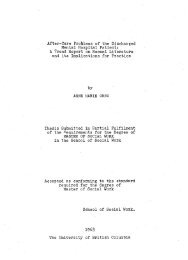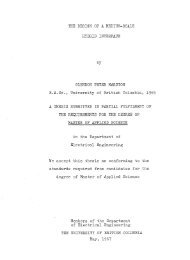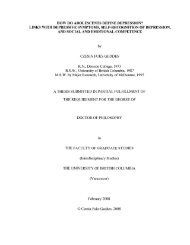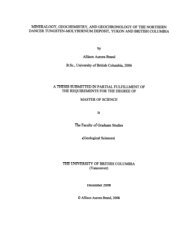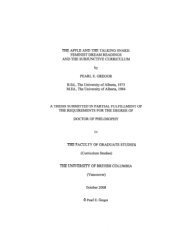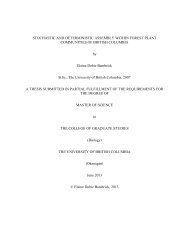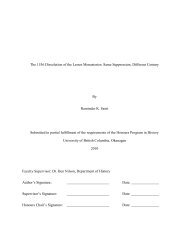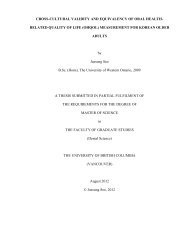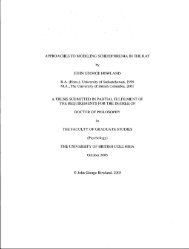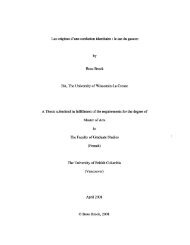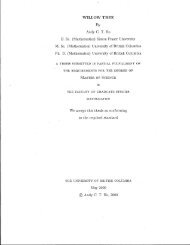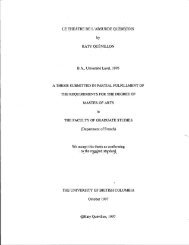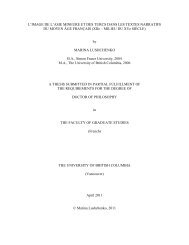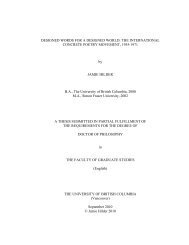A STUDY OF THE THEORY OF APPRAISAL FOR SELECTION By ...
A STUDY OF THE THEORY OF APPRAISAL FOR SELECTION By ...
A STUDY OF THE THEORY OF APPRAISAL FOR SELECTION By ...
Create successful ePaper yourself
Turn your PDF publications into a flip-book with our unique Google optimized e-Paper software.
that documented important historical episodes, or customs and<br />
mores of past ages.24 While Meissner's approach attempts to<br />
identify all possible subject areas of interest to future<br />
historical research, the identification of "important" historical<br />
episodes cannot help but reflect the particular interests that<br />
dominated historical study in Meissner's time. Even while<br />
attempting to provide for future research needs, it was<br />
inevitable that such an approach would fail.<br />
In 1940, Hermann Meinert participated in a special<br />
commission to formulate appraisal standards for the Prussian<br />
Privy State Archives. Meinert endorsed Meissner's standards,<br />
especially the evaluation of the administrative source of the<br />
records. He argued that the significance of a records creator<br />
to an administrative hierarchy can be determined through an<br />
analysis of "the position of each administrative unit in the<br />
government structure, the nature of its activities, and the<br />
relations of its activities to those of superior and subordinate<br />
administrative units."25 In this manner, Meinert first<br />
articulated the now well accepted theory that records must be<br />
appraised in their administrative context. The theory was later<br />
supported and expanded until it became the foundation for the<br />
methodology of appraisal.<br />
Meinert accepted the importance of evaluating the<br />
subject content of records.^He also sought an objective<br />
24 Schellenberg, Modern, 135-137.<br />
25 Schellenberg, Modern, 137.<br />
42



